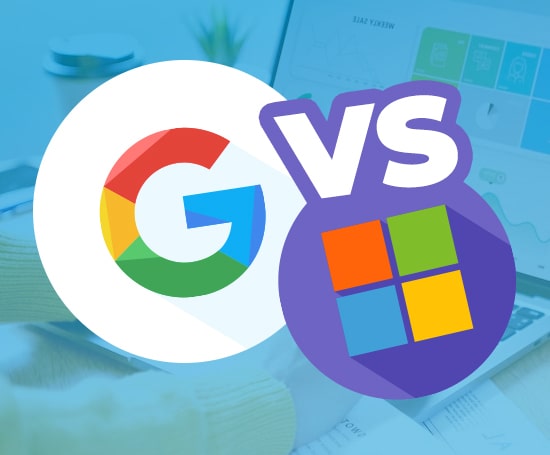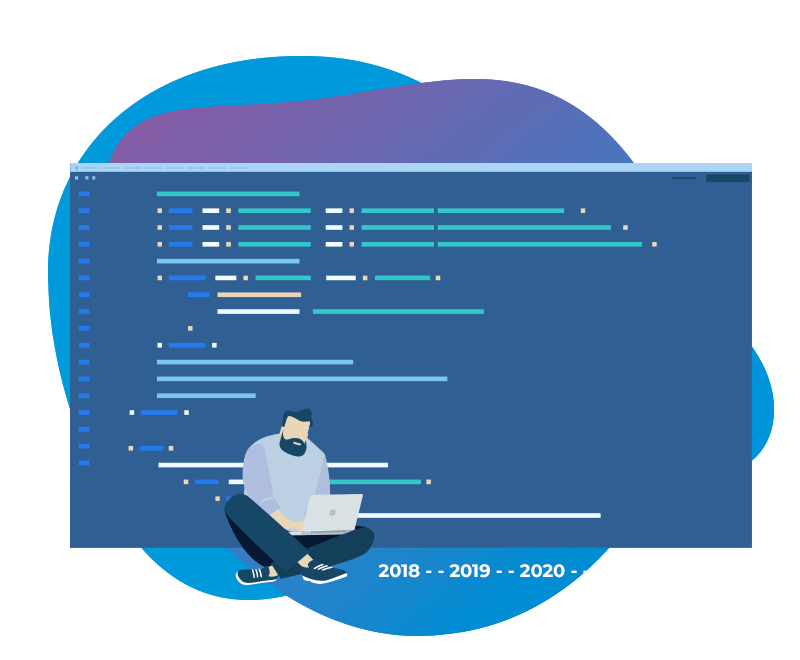Latest From The Sayu Blog



SEO for the igaming is a constantly changing landscape, and as a result it can be difficult to keep up with what works, what doesn’t and what can lead to problems.

From changes in how people use the internet and search for things, to updates to Google’s algorithm, it’s understandable how misconceptions of what’s considered best practice arise. Whether based on outdated or incorrect misinformation, believing some of the igaming SEO myths out there can result in a waste of resources at best, and at worst can have a significant negative impact on a website’s ability to rank.
So let’s take a look at some of the most common myths in igaming SEO in 2019.

Links are in important part of SEO and are a major factor used by Google when ranking websites. For this reason, it’s a common held misconception that acquiring as many links as possible, by whatever means possible, is all that’s needed to send your website flying to the top of the search results.
However, when it comes to links, it’s important to focus on quality rather than quantity. Over recent years Google has become increasingly sophisticated in how it assesses links and is better able than ever to spot bought or paid links, or links that have been generated as part of an automated link building process.
In many cases these days low quality, artificial links will simply be discounted and have no positive effect on a site’s ranking.


This leads some SEO teams to simply acquire as many links as they can. They take an approach that they’ll see the benefit from those that wash with Google, and those that don’t work, don’t matter.
However having too many low quality links acquired by dubious means can result in a manual action being applied to the site.
While Google won’t take into account low-quality or artificial links when ranking a site up to a point, there is a limit to how much will be tolerated. Exceeding this threshold or engaging in activity that triggers other signals can result in the site coming under close scrutiny from Google’s webspam team.
If it’s decided to apply a penalty for violation of the Webmaster Guidelines (which specifically prohibit any kind of link buying activity) then it can spell disaster for the site’s visibility within organic search and take a lot of work to have the penalty removed.
So while acquiring links remains an important part of any SEO strategy, it’s something that needs to be done carefully and in the right way. Focusing time and resources on developing high quality links will be far more efficient and effective than simply acquiring as many links as possible in the hope that some of them give the desired results.


A few good links from great quality websites can have much more of a positive impact than hundreds of low-quality links. And if these links are earned in a way that doesn’t violate Google’s guidelines, there’s no need to worry that the site’s positions will be decimated further down the line.


The opinion that Google doesn’t like SEO for igaming, much like the myth that SEO as a whole is dead, is something that is bandied about on a regular basis, particularly following algorithm updates that result in significant changes to search results. However it’s simply not true.
Good SEO should be about making a site more visible in organic search by improving the quality and value offered to visitors. Infact, Google provides various guides and information about SEO, albeit at a fairly basic level, and actively encourages website owners to address technical issues and improve the quality of their site with tools like Search Console.
When people say “Google doesn’t like SEO” what they usually mean is that Google doesn’t like black-hat SEO tactics. Often these are the same people who have seen their site punished as a result of underhand SEO methods they’ve been using, or have used in the past.
While it’s true that Google works to eliminate any rewards that sites may see as a result of SEO methods that are in violation of its guidelines, this does not mean that all SEO falls under the same umbrella.
SEO that focuses on improving the technical quality of the site, offering a great user experience, providing value to visitors and promoting the site within the online community in legitimate ways is certainly not disliked by Google and is an approach that gives sustainable long-term success.


In this post-Penguin world, there’s a lot of fear and misinformation about links and the activity of link-building for SEO purposes. So much so, that a number of high profile websites have been seen to stop using followed outbound altogether links over concerns that they’ll be considered unnatural, even when they are completely genuine.
The truth is that links are still considered to be one of the most important factors that search engines use when ranking a website. That’s not to say they are the only important factor, but they are certainly one of the most powerful.
However it’s important to understand that not all links are equal. Link building tactics that would have given good results a few years ago are now exactly the kind of thing that could see a site being penalised by Google and rankings destroyed. But natural, good quality links are an effective tool in any SEO arsenal.
Infact, Google’s own guidelines to creating a search engine friendly site say quite clearly “make sure that other sites link to yours” before going on to explain that links from important pages are weighted more heavily, and that natural links are useful for indexing and ranking purposes.
So far from being dead, link building is as alive and well as ever. The truth is that Google has simply become more sophisticated at picking up links acquired using black hat techniques. However with a focus on earning good quality natural links from important and well trusted websites, the right kind of link building remains an integral part of SEO.

It’s common to hear phrases like “keyword density” used when talking about content used on a website. This perhaps stems from SEO practices of the past, where getting a certain phrase or keyword onto a page as many times as possible, without stepping over a (usually undefined) threshold that made the content appear too spammy, was something that people aimed to achieve.
However, as Google has become more sophisticated, it has become better and better at understanding the meaning of content and the language used on a page.
Rather than simply identifying a particular keyword and assuming that the more it’s used, the better a page is as a match for what people searching for that keyword are actually looking for, Google aims to understand the meaning of the content and its level of quality.


This means it looks to identify how well that page satisfies what it believes to be the intent of the user (which may not even necessarily be the exact query the user searched for), regardless of how many times a particular keyword is used within the content.
This is not to say that you don’t need to use the keywords or phrases that you are targeting at all on your page as this is absolutely not the case and detailed keyword research is an important part of any content strategy.
However, writing content that adheres to a particular keyword density is not necessary and can sometimes result in content that doesn’t read well at all. Synonyms and related terms are also taken into consideration by search engines, meaning content can be created that reads more naturally to human visitors, covers the topic well, in addition to being able to be used to target a range of related queries.

While sitemaps in isolation don’t necessarily give your rankings a boost, they are useful for enabling search engines to discover and index your content as quickly as possible.
If you are regularly putting out new content that’s of good quality and designed to provide information of value, then including your new pages on a sitemap will help Google to quickly discover this content, crawl it and index it.

If your content is optimised to target a particular query or keyword topic, this can help to get your pages in front of your audience as quickly as possible.
The same is true when adding new games to a casino site; the faster your pages are picked up by search engines, the more chance they have of ranking before the competition.


The duplicate content penalty myth is one that’s been around for a while now, with fear about being penalised for using duplicate content receiving a lot of hype following Google’s Panda algorithm.
While it’s true that using duplicate content is not a good idea, and you may not rank very well as a result, this isn’t necessarily because of a penalty that’s been directly applied to your site.
Google likes to show users a range of different pages in its results rather than multiple pages that just show the same content. For this reason, when it picks up content that is already in its index, it might not want to show that content above similar pages on other sites that offer unique content.
With that being said, there are lots of instances in igaming where the same or similar content used on multiple sites will rank at the same time, suggesting duplicate content and the impact this has on the perceived quality (or lack thereof) of a site is just one of many ranking factors.
However expecting to be able to copy your competitors content and outrank them is probably not something that’s going to happen.
So while using duplicate content won’t necessarily get you into trouble, neither will it help you to rank, and unique content that offers value to users not available elsewhere is always something to aim for that will provide a benefit to outrank competing websites.

When it comes to content duplicated throughout your own site, such as terms and conditions, this isn’t usually something to worry about. It’s useful to bear in mind the proportion of content on your site is duplicated in this way, and look to reduce it if possible by diluting with unique content. However search engines do understand that some duplication is inevitable and even necessary with certain types of content, and it’s not something you’ll be penalised for.


Within the igaming sector it’s common to need to target different countries and territories, along with different languages used in each region. Sports betting and online casino games are enjoyed worldwide and it makes sense for operators of online casinos to want to reach as much of this audience as possible.
However when it comes to international targeting for igaming, it’s not always necessary to use a country code top level domain (ccTLD) for each territory. There are several strategies that can be used successfully for international targeting, including the use of sub-directories on the same site.
Hreflang tags are a useful tool that enable site owners to describe the relationship between different versions of their pages that target different languages and countries, whether these pages are on the same site or different sites.
Deciding on the most suitable international igaming SEO strategy involves reviewing your individual requirements and capabilities, and considering how you may want to grow in the future.
The truth is that SEO can help online casino operators at a global level if the options are understood and a suitable strategy is correctly implemented, without necessarily needing a ccTLD for every territory.


SEO, particularly in highly competitive markets like igaming, is neither a quick fix or a set and forget solution. SEO for igaming should be considered as a long term, ongoing investment if you are to get the best results.
While it’s true that initial work on a site can include fixing existing technical issues and optimising for an identified list of search queries, the very nature of the search landscape and the igaming market means that ongoing SEO is essential.
As we’ve seen looking into some of the other myths covered in this article, certain SEO activities that at one point are considered best practice can quickly become ill-advised and a danger to a website’s ability to rank.
Due to the amount of myths, misinformation and outdated practices out there, it’s important when it comes to igaming SEO to ensure that you are aware of and stay up to date with the latest best practice guidelines, whether the work is handled in-house or by a specialist SEO agency.

From identifying and addressing new technical issues that come up as search engine algorithms and guidelines change, to rolling out strategies for targeting new markets and technologies and developing content projects that increase a site’s visibility and provide opportunities to earn links, there aren’t many parts of SEO that can simply be done once and then forgotten about.

SEO is an ever-changing discipline and what’s considered best practice one day can become something to avoid the next. Search engine algorithms are continuously updating to reflect changes in technology and user behaviour, as well as to combat black-hat SEO tactics amongst other things.
On top of this, new practices and requirements are coming into play all the time. As a result, it’s easy to see how SEO myths come into being; they are often based on outdated information mixed with a misunderstanding and speculation.
The right igaming and casino SEO strategy means staying on top of all these changes and adapting how resources are used to suit. With that being said, if the ultimate focus of your campaign is to offer a great experience to users, to make your site the best it can be technically, and to promoting it in legitimate ways, then you shouldn’t have too much to worry about.


